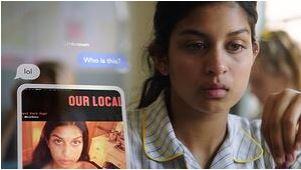
Cyber Safety
Awkward! ... but necessary: Talking to your child about sexting
It’s one of the most uncomfortable parenting challenges the digital world has thrown at us - but getting all judge-y about it won’t solve the problem. Talking openly just might.
Sending and receiving intimate images is no longer something that happens to other kids. Odds are yours too will be exposed - quite possibly a whole lot sooner than you ever imagined.
One large-scale study found over 15% of eight-year-old girls had been exposed to sexting. By age 13, a quarter of children were asked to send nudes or requested them themselves.
So don’t wait til you stumble across the images on your child’s phone - or until she is showing signs of social anxiety or school refusal or other distress. Be proactive. Be brave. Start the conversation.
But first - know the facts.
Blame their brains
The research is clear that human brains don’t reach full development until around age 25. And the frontal cortex - the part of the brain that controls emotional expression, problem-solving, judgment and sexual behaviour - happens to be the last region to mature.
Which pretty much explains why our teens too often take risky chances, fail to see the consequences of their actions, think short-term, see themselves as bullet-proof - in short, why they need tons of extra support to make good decisions.
Emotional fallout
Exchanging nude images within a committed and mature relationship may seem harmless. But by virtue of their age and stage of development, our teens are not mature - certainly not fully. Nor are their relationships, however close and loving they may be.
The fact is, at this age emotions are fleeting, and subject to unpredictable and sometimes violent shifts.
Ask your child to reflect on the relationships they see in their peer group. Which are the solid ones? Which ones seem destined for break-up? What happens when couples break up? Is it always possible to remain friends? If there’s bitterness after a break-up - what then?
Sextortion - the sharing of once-private intimate images for the purpose of revenge or profit - is a real thing, and it can ruin lives.
That said, try not to become overly dramatic in the way you discuss this danger with your child. Strive for a matter-of-fact tone, and remember you are not arguing a case in a court of law, nor are you trying to “win” here. Your aim is simply to get the facts out on the table.
It might also be effective to sit down together and watch the recent SBS series The Hunting, which was based on a real-life sexting scandal in an Australian high school.
Legal consequences
In addition to the emotional and ethical implications of sexting, there are legal consequences to sexting - even when there is consent by both parties.
Many kids are stunned to find out that, when sexting involves someone under 18, it can be considered child pornography.
"Under Australian law it is illegal to use your phone or internet to take, keep, look at, send, or ask someone to send sexual images or videos of anyone who is under 18 years of age (or anyone who looks under the age of 18)."
This law applies even to selfies.
If you live in WA, it's important to know that new legislation prohibits intimate images or videos to be shared of anyone under the age of 16 or without the consent of the person in it.
An intimate image or video can be someone naked, in their underwear or a person doing anything private like using the toilet or showering - and that includes photoshopping someone’s face into a sexual image of someone else.
What if a ‘private’ sext goes public?
Ask your child how they would handle it if a private sext were made public.
Be aware that experts advise the first step should be to ask the person who shared it to remove it. If the image has been shared on social media, your child should un-tag themselves and report the image so that it can be taken down. (For more information on how to do this visit the eSafety website.)
If you think a crime has been committed, you can also contact the police.
What if someone sends your child an unwanted sext?
Again, ask your child how they would handle it. Ask if they have friends who have been in this position. How did they respond? Was the response effective? How could it have been handled differently?
Experts advise letting the sender know that you don’t want to receive images like this. If they ignore you, the next step is to block them on social media and/or from text messages and calls on your phone. (For more information on how to do this visit the eSafety website.)



